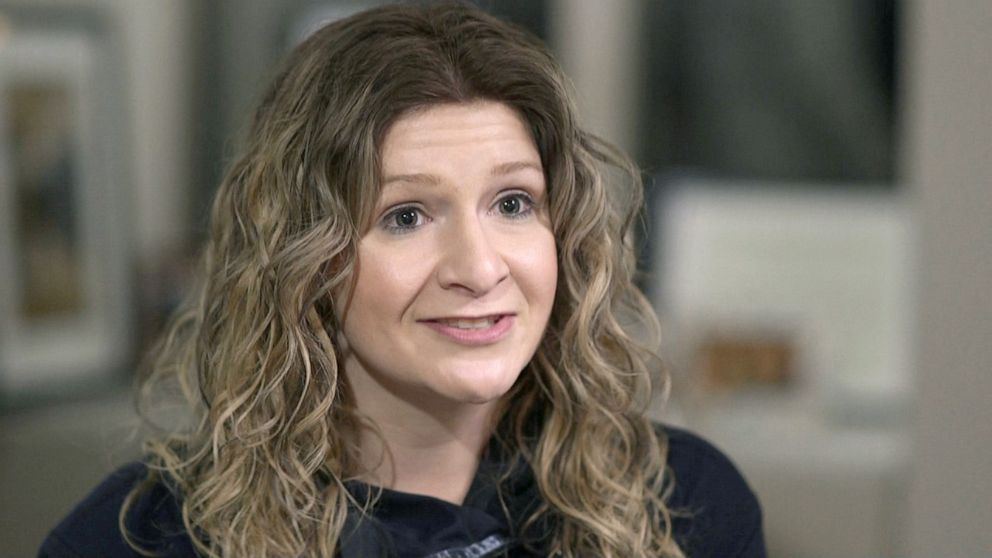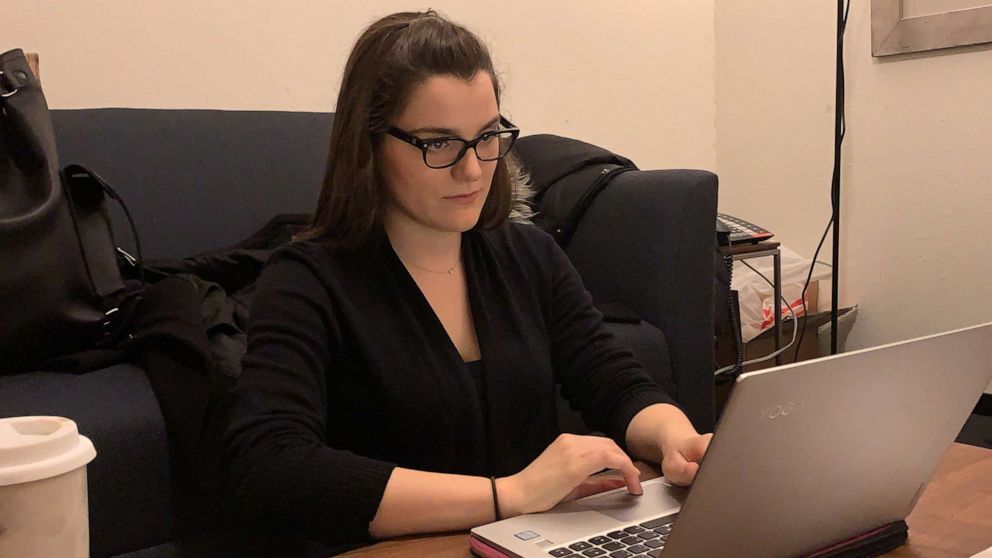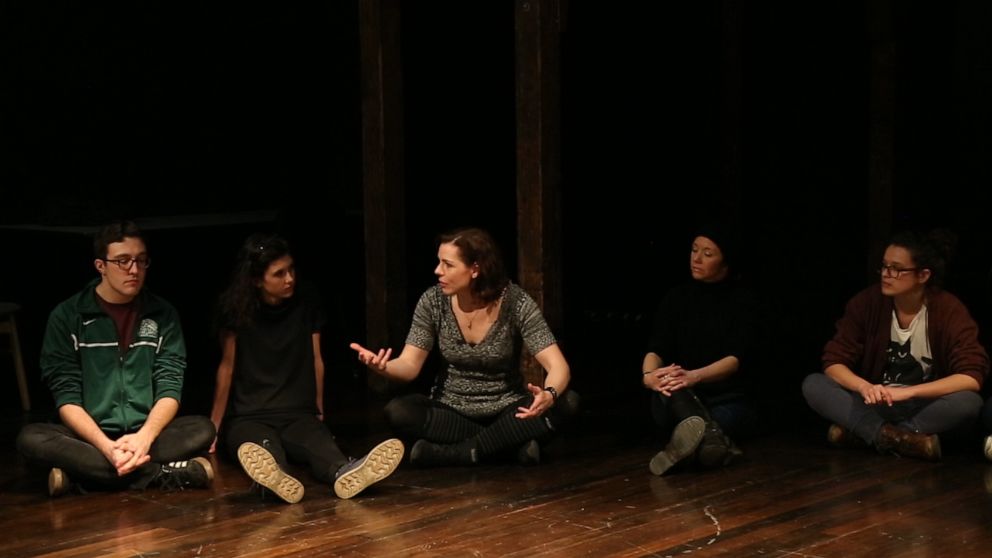Making sex scenes safe for actors: the budding industry of intimacy coordinators
This new role helps advocate for actors in intimate scenes.
A wave of shows like "The Deuce," centered on the porn industry in the 1970s, and “Euphoria," which shows young adults using hard drugs and having sex, has helped usher in a new sort of safety net in the #MeToo era – intimacy coordinators.
As the steamy scenes that hook audiences to cable shows are carefully choreographed and filmed, the coordinators are on hand to help ensure that the actors' safety and well-being is taken into account and to avoid miscommunication or any kind of harm.
Alicia Rodis, a former actor who is now an intimacy coordinator and the director of Intimacy Directors International, described the field as professionals who work as “movement coaches, liaisons between actors and production, and advocates for actors in relation to scenes involving nudity and simulated sex.”
“We are … not actually having sex on set but we are telling the story of that,” Rodis told “Nightline. “It's amazing how much better the product is when the actors know they're going to work and are not going to be sexually assaulted that day.”
Earlier this month, the Screen Actors Guild‐American Federation of Television and Radio Artists (SAG-AFTRA) announced it would work with coordinators to create a set of guidelines to establish “new, relevant policies for nudity and simulated sex.”

Rodis worked on season three of HBO's “The Deuce,” which stars Maggie Gyllenhaal and James Franco, and traces the beginnings of the billion-dollar pornography industry from its start in 1970s Times Square, and helped develop a protocol for intimacy on stage and TV sets that is now seen as a model for the industry.
Based on the success of the experience on “The Deuce,” HBO announced it would require a coordinator on all of its scripted shows.
“They were the first TV show to pull me in and say 'We know we need something; we think this is what we need' … our first meeting they asked me 'how does this work?' and I said, 'well I've never done this in an episodic TV series so I think we're all going to figure out how this works together,'" Rodis said
She said of the link between the desire for clear guidelines and the #MeToo movement.
"It is good for business," she said. "On one hand it is covering your ass, on the other hand, something that I’ve been really impressed with all of HBO is how much they realize that, ‘This is not for us, this is for the industry.'"
Coordinators like her take special care to look out for actors’ “emotional health,” she said.
“It’s much more looking out for to make sure someone isn’t being traumatized to make sure that someone isn’t being harassed,” she said.
Actresses say sexual coercion is a long standing problem on Hollywood sets.
Last year, the actress Rose McGowan reflected on intimate moments in a string of nude scenes she filmed while building her career, including in the 1997 film “Going All The Way.”
“I thought it would be easier because the topless scene was with an actor that I had been friendly with off camera before the movie,” McGowan told “Nightline” in 2018. “Just friends. And it in fact was … the scene felt like what it really felt like, which felt, like, exposed, and creepy, and not right.”
She said this was the film which led her to meet Harvey Weinstein, during a screening of the film, at the Sundance Festival in 1997. She later accused Weinstein of rape, and Weinstein has denied the allegation.
A flood of women followed and , since the Weinstein's very public downfall, allegations in Hollywood about improper conduct have continued.
Actress Eliza Dushku reached a $9.5 million settlement with CBS over sexual harassment claims on the set of the show “Bull,” where she played J.P. Nunnelly.
Her lawsuit claimed she was fired after reporting sexual harassment by her co-star. She wrote in a blistering op-ed in the Boston Globe, “I worked at CBS. I didn’t want to be sexually harassed. I was fired.”
In December, CBS confirmed the settlement and pledged to improve working conditions.
“The allegations in Ms. Dushku’s claims are an example that, while we remain committed to a culture defined by a safe, inclusive and respectful workplace, our work is far from done,” the statement said. “The settlement of these claims reflects the projected amount that Ms. Dushku would have received for the balance of her contract as a series regular, and was determined in a mutually agreed upon mediation process at the time.”
The small but growing world of intimacy coordinators includes 26-year-old Amanda Blumenthal, whose work can be seen in “Euphoria” and “The Affair.”

“Having choreography is really important so that actors can consent to where they're going to be touched before we do the scene,” Blumenthal said.
She revealed a trove of modesty garments, an important level of safety and hygiene for actors, which hides private parts.
Legal agreements known as nudity riders are an equally important aspect of her job as an advocate for actors on set, Blumenthal said.
“It can get as specific as, like, ‘We can also see, like, the upper right quadrant of someone's butt. We can only see side rear nudity. We can only see side breasts,’” she explained.
Blumenthal said in order to pressure actors into doing more nude or sex scenes, directors and others behind the scenes may explicitly or implicitly threaten actors’ future.
Nudity riders and advocates -- neither of which were previously required -- are now providing an added level of accountability in highly vulnerable and intimate scenes.
“Some of the worst stories I've heard are from crew you know costume, makeup, sound people who are being forced to be in situations where they say, ‘I couldn't sleep for a week after that,'” Rodis said.
Rodis believes her organization’s practices are already making a difference.
She pointing to a violent sexual assault scene in season 2 of “The Deuce” between actors Emily Meade and Gary Carr.
“It's between a pimp and the prostitute. But it's when she's about to be not working with him anymore and it's his goodbye to her and it was a very emotional scene… someone said you know that's your last scene with Gary and they both started to cry and like hugged each other,” Rodis said.
“And I thought how awesome is that that we just filmed this really gruesome non-consensual sex scene and they are finishing it by crying joy, but sorrow they're not working together anymore,” she said. “They’re not in some traumatized… place from doing this scene.”
This new wave of advocacy for actors now extends beyond Hollywood and Broadway to the college theaters.
One workshop at Sarah Lawrence for students and faculty, led by intimacy coordinator Claire Warren, was based on consent and communication while working on intimate scenes.

Providing training like this will hopefully usher in a new generation of accountability, for female and male actors alike.
“I think maybe we're realizing that we're not that different from another… I think there were a lot of predators going after women for a while. But, I mean, men are sensitive, too. And we feel awkward at times, too. And uncertain at other times,” actor Kurt Mast said. “I mean, having someone there who sees it from an outside perspective and goes, ‘Oh, actually, if you'd just your hand a little lower, that would be better,’ and you go, like, ‘Okay, thanks.’
But journalist Kim Masters, who has covered Hollywood since the late 80s, what’s “absolutely” needed “to see diversity and proper conduct in the workplace is more women, more people of color, in the executive suites. That’s the only thing that’s going to change anything.”
Earlier this month, the Screen Actors Guild‐American Federation of Television and Radio Artists (SAG-AFTRA) announced it would work with coordinators, including Rodis, to create a set of guidelines to establish “new, relevant policies for nudity and simulated sex; define the duties and standards for intimacy coordinators on productions; and specify acceptable training, vetting and qualifications of intimacy coordinators."




